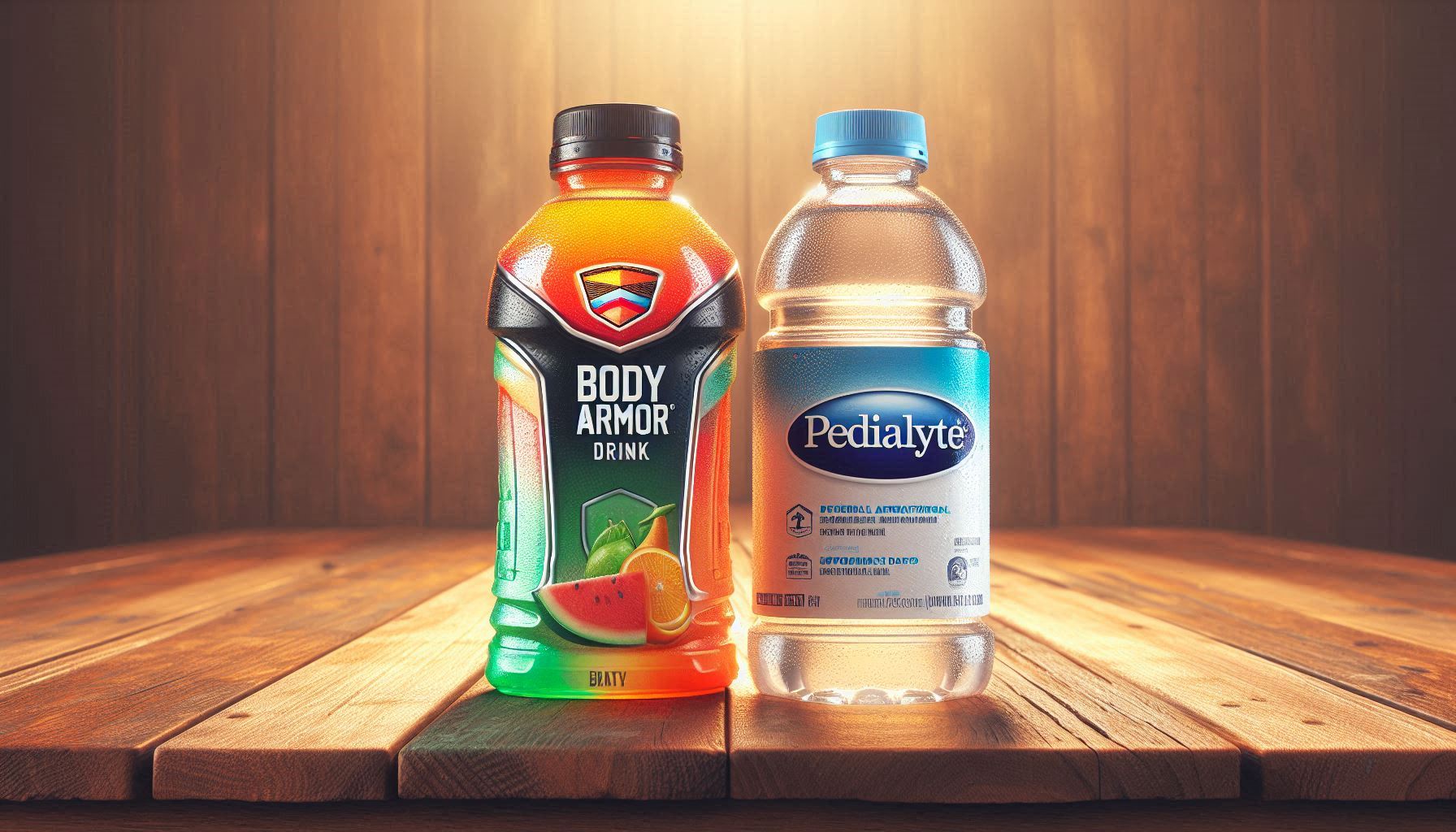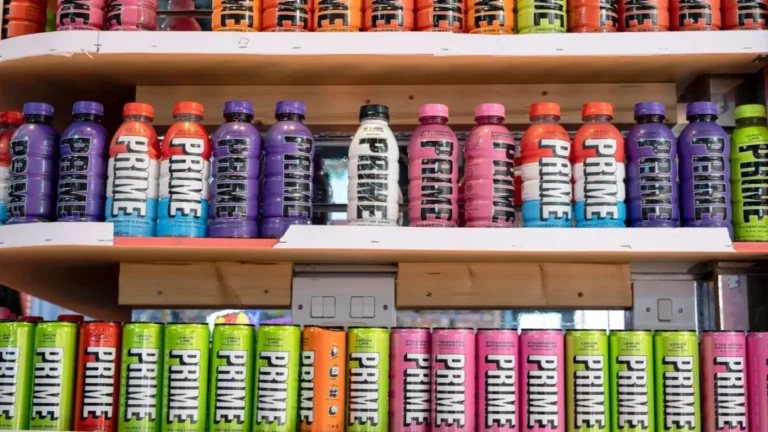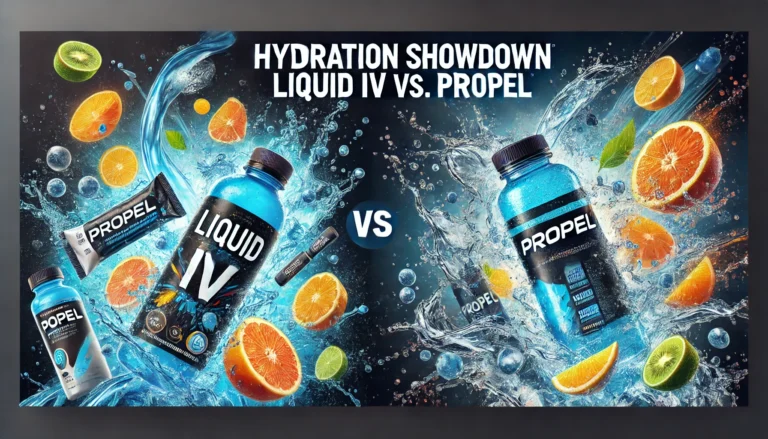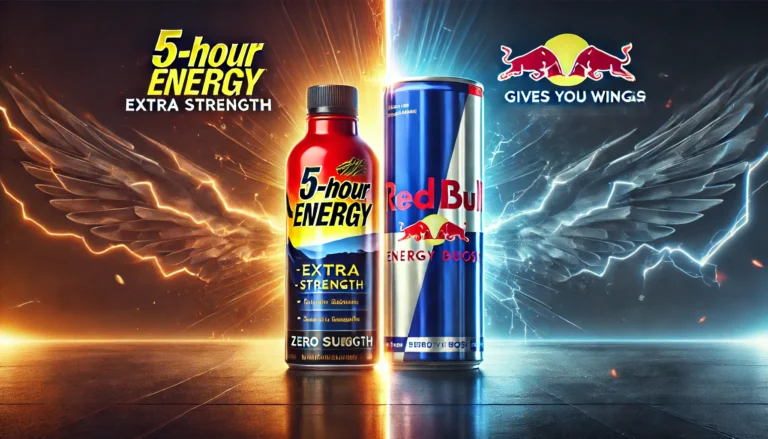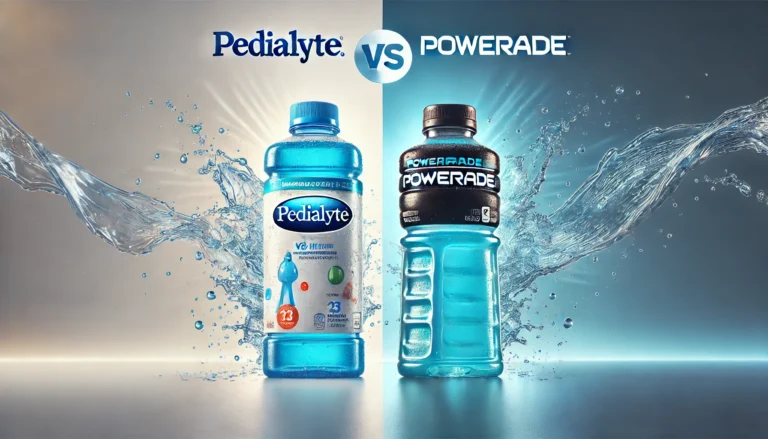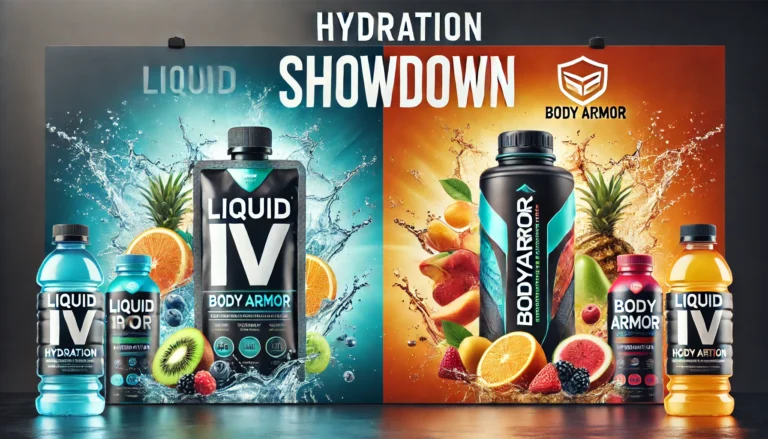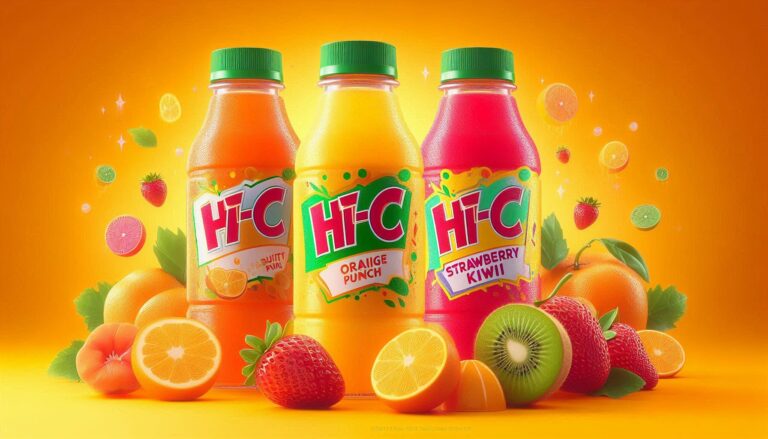Body Armor vs Pedialyte: A Comprehensive Hydration Showdown
When it comes to staying hydrated, especially after intense workouts or when you’re feeling under the weather, it can be tough to figure out which drink is the best for you. Two popular options are Body Armor and Pedialyte—each with its unique ingredients and benefits. Body Armor is known for its refreshing, fruity flavors, while Pedialyte is often the go-to for quick and effective hydration, especially after an illness. But how do they stack up against each other when it comes to ingredients, hydration, and taste? Let’s dive into the details and help you figure out which one might be the better choice for your hydration needs!
What is Body Armor?
Body Armor is a popular sports drink brand designed to provide hydration and replenish electrolytes for athletes and active individuals. It was created to offer a healthier alternative to traditional sports drinks, emphasizing the use of natural ingredients, fewer artificial additives, and a focus on hydration with added vitamins and minerals. Body Armor is marketed as a product that helps improve performance and recovery by restoring essential nutrients lost during physical activity.
What is Pedialyte?
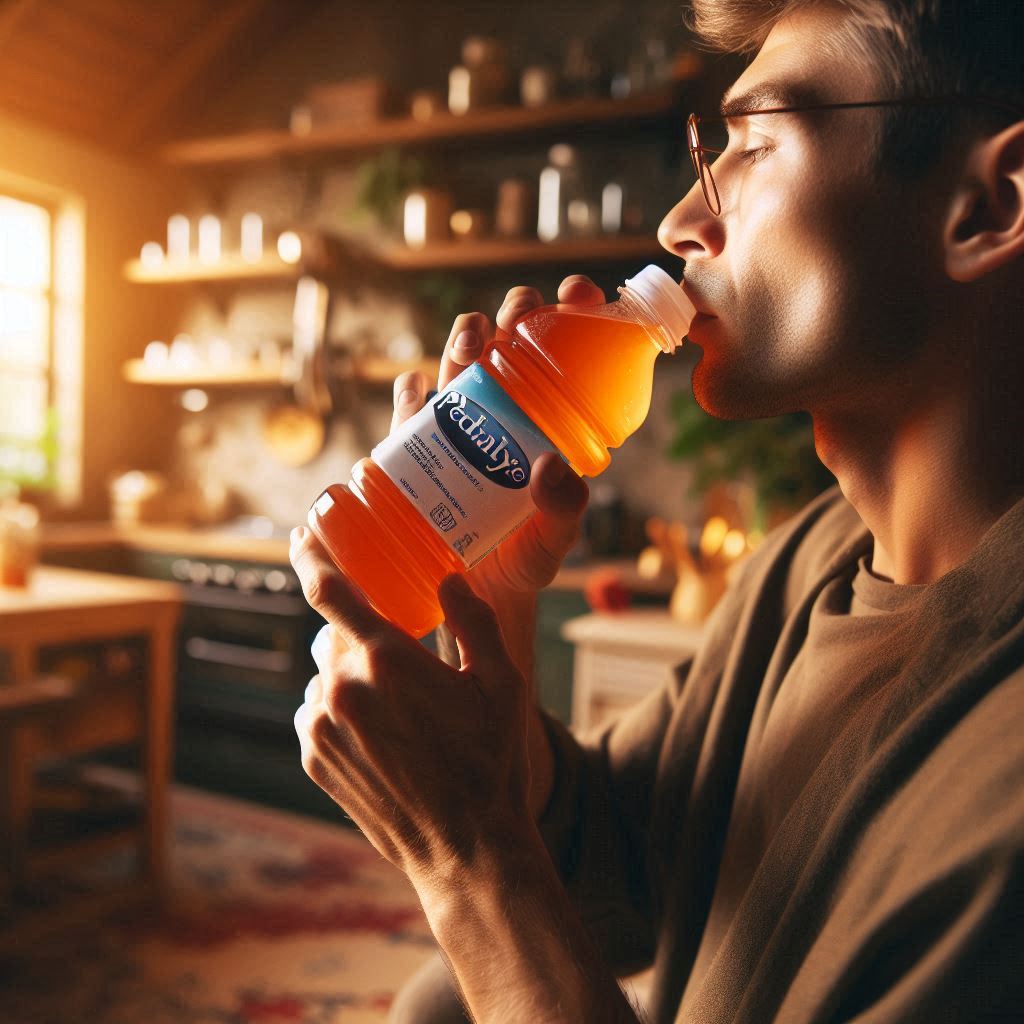
Pedialyte is a well-known oral rehydration solution (ORS) designed to help rehydrate and restore electrolytes lost due to dehydration. It was originally developed for children to treat dehydration caused by illnesses like diarrhea or vomiting, but over time, it has gained popularity among adults, particularly for hydration recovery after intense exercise, hangovers, or illness.
Body Armor vs Pedialyte: Ingredients and Nutrition Comparison (1) (2)
Body Armor Nutrition Facts (16 oz Bottle)
| Nutrient | Amount | % DV |
|---|---|---|
| Calories | 120 | – |
| Calories From Fat | 0 | – |
| Total Fat | 0 g | 0% |
| Saturated Fat | 0 g | 0% |
| Trans Fat | 0 g | 0% |
| Cholesterol | 0 mg | 0% |
| Sodium | 30 mg | 1% |
| Potassium | 680 mg | 15% |
| Total Carbohydrate | 29 g | 11% |
| Dietary Fiber | 0 g | 0% |
| Sugars | 29 g | – |
| Protein | 0 g | 0% |
Ingredients:
- Filtered Water
- Pure Cane Sugar
- Coconut Water Concentrate
- Citric Acid
- Dipotassium Phosphate (Electrolyte)
- Vegetable Juice Concentrate (Color)
- Ascorbic Acid (Vitamin C)
- Magnesium Oxide (Electrolyte)
- Calcium D-Pantothenate (Vitamin B5)
- Niacinamide (Vitamin B3)
- Natural Fruit Punch Flavor with Other Natural Flavors
- alpha-Tocopheryl Acetate (Vitamin E)
- Zinc Oxide (Electrolyte)
- Pyridoxine Hydrochloride (Vitamin B6)
- Vitamin A Palmitate (Vitamin A)
- Folic Acid (Vitamin B9)
- Cyanocobalamin (Vitamin B12)
Pedialyte Nutrition Facts (12 fl oz / 360 mL)
| Nutrient | Amount | % DV |
|---|---|---|
| Calories | 25 | – |
| Total Fat | 0 g | 0% |
| Sodium | 390 mg | 17% |
| Total Carbohydrate | 7 g | 3% |
| Total Sugars | 5 g | – |
| Added Sugars | 5 g | 10% |
| Protein | 0 g | 0% |
Minerals:
- Potassium: 280 mg (6% DV)
- Zinc: 2.8 mg (25% DV)
- Chloride: 440 mg (20% DV)
Ingredients:
- Water
- Dextrose
- Less than 0.5% of:
- Citric Acid
- Potassium Citrate
- Salt
- Natural and Artificial Flavor
- Sodium Citrate
- Sucralose
- Acesulfame Potassium
- Zinc Gluconate
- Yellow 6
Comparison of Key Nutrients:
| Nutrient | Body Armor (16 oz) | Pedialyte (12 oz) |
|---|---|---|
| Calories | 120 | 25 |
| Total Fat | 0 g | 0 g |
| Sodium | 30 mg | 390 mg |
| Potassium | 680 mg | 280 mg |
| Total Carbohydrate | 29 g | 7 g |
| Sugars | 29 g | 5 g |
| Added Sugars | Not listed | 5 g |
| Zinc | 0 mg | 2.8 mg |
Key Differences:
- Calories and Sugars:
Body Armor contains significantly more calories (120) and sugars (29g) per serving compared to Pedialyte, which has only 25 calories and 5g of sugars per serving. This makes Body Armor a more energy-dense drink, while Pedialyte is a lighter option for rehydration with fewer calories and sugars. - Sodium:
Pedialyte has a much higher sodium content (390 mg) compared to Body Armor (30 mg). This makes Pedialyte a better choice for quickly replenishing sodium lost through sweat, especially during or after intense physical activity. - Potassium:
Body Armor provides 680 mg of potassium (15% DV), a higher amount than Pedialyte, which contains 280 mg (6% DV). Potassium is important for maintaining fluid balance and muscle function, so Body Armor might be more suitable for those looking to restore potassium levels after extended physical activity. - Added Sugars:
Both drinks contain added sugars, but Body Armor has a higher overall sugar content due to its fruit-based flavoring and the use of pure cane sugar. Pedialyte’s added sugars are relatively low, making it more suitable for individuals who are watching their sugar intake. - Vitamins and Electrolytes:
Body Armor contains a range of added vitamins (A, C, E, B6, B12, etc.) and minerals (magnesium, calcium, zinc), making it a more vitamin-rich option, especially for those looking for an added boost of vitamins during hydration. Pedialyte focuses more on restoring electrolytes like potassium, sodium, and zinc without added vitamins.
Taste and Flavor Preferences: Body Armor vs Pedialyte
Body Armor: Taste and Flavor Variety
1. Fruit-Based, Naturally Sweet Flavors
- Flavors Available: Body Armor offers a wide variety of flavors, including:
- Fruit Punch
- Tropical Punch
- Orange Mango
- Grape
- Strawberry Banana
- Peach Mango
- Watermelon Strawberry
- Taste Profile:
- Naturally sweet: Body Armor is known for its sweet, fruit-forward flavors, made with natural fruit juices and pure cane sugar. It has a refreshing and pleasant sweetness that isn’t overpowering, making it enjoyable to sip during physical activity.
- Smooth and flavorful: The coconut water adds a subtle tropical note, enhancing the overall flavor experience.
- Fruit Juice Taste: The drink often has a similar flavor profile to fruit juice, making it a good choice for those who enjoy fruity beverages.
2. Suitable for Sweet Tooths:
- If you enjoy sweet drinks, Body Armor will appeal to you due to its natural sweetness derived from cane sugar. It balances the flavor of fruit with just the right amount of sugar to make it a tasty drink during sports or recovery.
3. A Healthier Sweet Option:
- Natural sweetness with no artificial flavors or preservatives, Body Armor’s flavor is designed to mimic a healthy fruit juice, perfect for those who want a refreshing, hydrating beverage without feeling like they’re indulging in something overly sugary or artificial.
Pedialyte: Taste and Flavor Profile
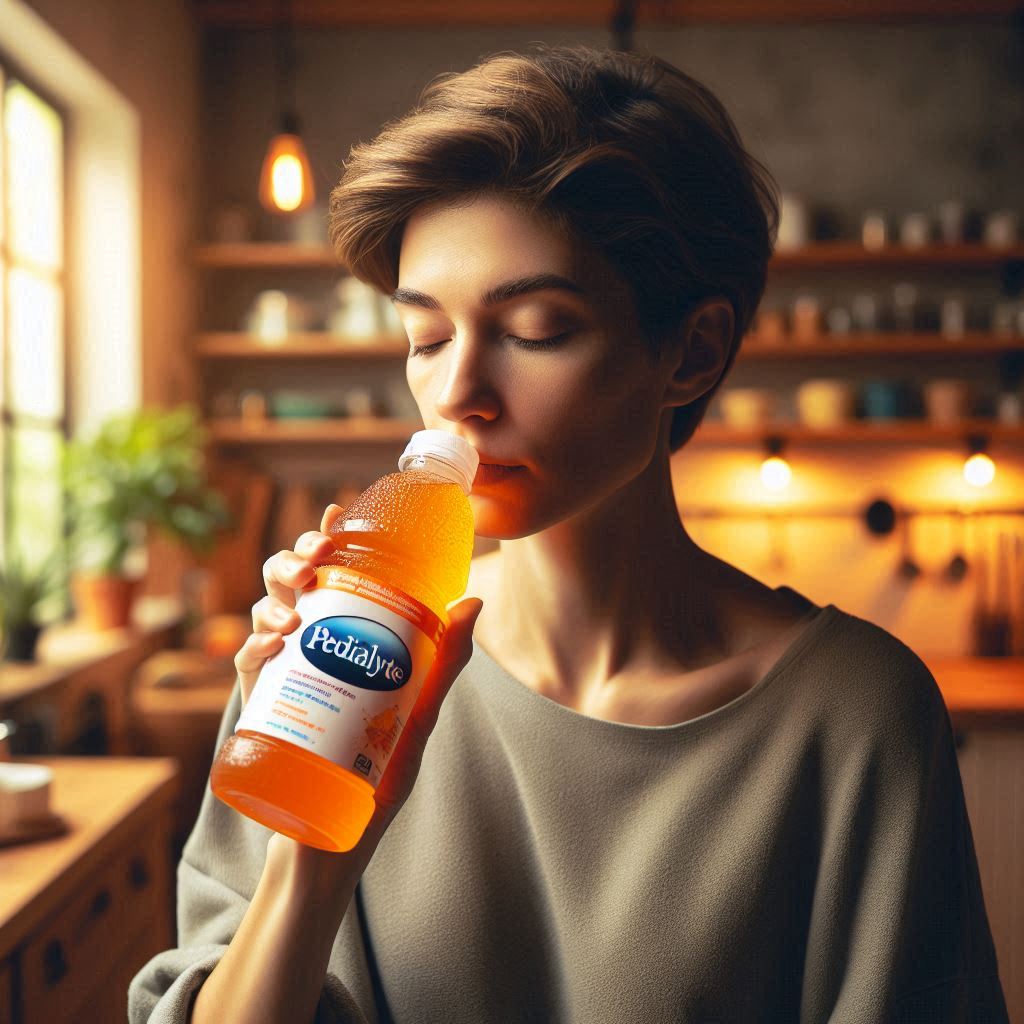
1. Simple and Functional Flavors
- Flavors Available: Pedialyte typically comes in simpler, more neutral or slightly tangy flavors. These include:
- Original (Fruit Punch)
- Grape
- Orange
- Apple
- Lemon Lime
- Tropical Fruit
- Taste Profile:
- Mild and subtle: Pedialyte is designed to be a functional beverage, so its flavors are not as bold or sweet as Body Armor’s. It’s crafted to help rehydrate without being overly sweet or intense.
- Slightly salty: The added electrolytes in Pedialyte, including sodium and chloride, can give the drink a more salty aftertaste, which is a key part of its function to restore electrolytes quickly. This taste might take some getting used to, but it helps with hydration.
- Light sweetness: It has a very light sugar content, just enough to balance the taste and make it palatable, but it’s definitely not a sugary drink.
2. Best for Functional Use:
- Taste for recovery: Pedialyte’s flavors are geared more towards quick and effective hydration rather than indulgence. It’s slightly sweet but mostly neutral with a mild aftertaste. People who are looking for a drink that’s not as sweet will appreciate this.
3. Pediatric Friendly:
- The flavors are designed with children in mind, being more mild and subtle compared to adult-targeted drinks like Body Armor. Pedialyte’s flavors cater to the needs of those recovering from illness, offering something that isn’t overwhelming to a sensitive stomach.
Comparison of Taste Preferences:
| Taste Profile | Body Armor | Pedialyte |
|---|---|---|
| Sweetness Level | High, naturally sweet (due to cane sugar) | Low, subtle sweetness with light sugar |
| Flavor Type | Bold fruit flavors (e.g., Fruit Punch, Tropical Punch) | Mild and neutral (e.g., Grape, Lemon Lime) |
| Additional Taste Elements | Tropical, coconut water undertones | Slight salty taste due to electrolytes |
| Best For | People who prefer a sweet, fruity drink | Those needing functional hydration, especially after illness |
| Children’s Preferences | Likely to appeal due to sweet and fruity flavors | More neutral flavors, may be easier for children recovering from illness |
| Drink for Sports and Recovery | Great for hydration during and after physical activity | Ideal for rehydrating after illness or dehydration |
Which One to Choose Based on Taste:
- Go with Body Armor if you prefer a sweet, flavorful drink that’s more like a fruit juice, packed with bold flavors and a refreshing sweetness. It’s perfect for those looking to hydrate after physical activity or for anyone who enjoys a naturally sweet beverage.
- Go with Pedialyte if you’re looking for a functional hydration drink that’s lighter on sweetness and designed specifically for recovery, whether from illness or dehydration. Its milder, slightly salty taste is ideal for those who need quick, efficient rehydration without the need for a sugary, fruit-flavored drink.
Hydration & Electrolytes Comparison: Body Armor vs Pedialyte
Both Body Armor and Pedialyte are popular choices for hydration, but they differ significantly in their composition and focus on specific hydration needs. Here’s a breakdown of how each product supports hydration and electrolyte replenishment:
1. Electrolyte Composition:
Body Armor:
- Potassium: 680 mg (15% DV)
Body Armor provides a high dose of potassium, which is important for maintaining fluid balance, muscle function, and preventing muscle cramps during or after intense physical activity. - Sodium: 30 mg (1% DV)
Body Armor contains minimal sodium, making it a low-sodium option compared to Pedialyte. While sodium is necessary for rehydration, Body Armor relies more on potassium and other vitamins for hydration. - Magnesium: Included as Magnesium Oxide
Magnesium is another key electrolyte in Body Armor, supporting muscle function and relaxation, which is essential for recovery after exercise. - Calcium: Included as Calcium D-Pantothenate (Vitamin B5)
Calcium supports bone health, but Body Armor’s calcium content is lower in comparison to Pedialyte’s sodium and chloride focus. - Zinc: Zinc Oxide
Zinc helps support the immune system and is included in Body Armor’s formulation as an added benefit for overall wellness.
Pedialyte:
- Potassium: 280 mg (6% DV)
Pedialyte has a lower potassium content than Body Armor, but still provides an essential dose to maintain hydration. Potassium helps maintain fluid balance and nerve and muscle function. - Sodium: 390 mg (17% DV)
Pedialyte contains a high level of sodium, which is key for rapid rehydration. Sodium helps the body retain water and is crucial for recovery from dehydration caused by illness, physical exertion, or heat. - Chloride: 440 mg (20% DV)
Chloride, which often works in tandem with sodium, is vital for maintaining fluid balance and cellular function. Pedialyte’s chloride content is higher than that in Body Armor. - Zinc: 2.8 mg (25% DV)
Zinc is included in Pedialyte for immune support, a feature shared with Body Armor, though Pedialyte’s concentration is higher.
2. Hydration Focus:
Body Armor:
- Target Audience: Body Armor is marketed as a sports drink designed to provide hydration and replenish essential electrolytes lost during exercise. Its formulation is tailored for active individuals looking to restore electrolytes, vitamins, and minerals.
- Electrolyte Balance: While it contains a significant amount of potassium and magnesium, it does not have as high a sodium concentration as Pedialyte, making it less effective for rapid rehydration in severe dehydration scenarios.
- Other Ingredients for Hydration: Body Armor includes coconut water concentrate, a natural source of electrolytes, to help improve hydration. Additionally, its added vitamins support overall health and wellness.
Pedialyte:
- Target Audience: Pedialyte is primarily targeted at children and adults recovering from illness or dehydration, but it is also suitable for those needing rapid hydration due to heat exposure, intense physical activity, or hangovers.
- Electrolyte Balance: Pedialyte’s high sodium content (390 mg) and chloride make it an ideal choice for rapid rehydration, especially in situations of significant fluid loss. Its higher sodium content helps retain fluids and restore the body’s electrolyte balance quickly.
- Other Ingredients for Hydration: Pedialyte’s formula is more focused on electrolyte restoration with minimal sugars and calories. It uses dextrose (a simple sugar) as an energy source but in low quantities to avoid spikes in blood sugar levels.
3. Hydration Benefits:
Body Armor:
- Provides sustained hydration during physical activity and post-exercise recovery.
- High in potassium, making it great for maintaining hydration and preventing muscle cramps.
- Contains natural ingredients like coconut water for electrolyte replenishment.
- Vitamins (A, C, E, B6, B12) support overall immune function and health.
- Best suited for athletes or individuals who want to replenish both electrolytes and vitamins.
Pedialyte:
- Best suited for rapid hydration and electrolyte replacement in cases of illness, intense dehydration, or exercise.
- High sodium and chloride content makes it ideal for restoring electrolytes lost during severe dehydration.
- Offers low-calorie hydration, making it suitable for those who want to avoid excess sugars and calories.
- Contains zinc for immune support, along with potassium for fluid balance.
4. Sugar and Calories:
Body Armor:
- Calories: 120 per 16 oz bottle
- Sugars: 29g (mostly from pure cane sugar and coconut water concentrate)
Body Armor contains a higher amount of sugar compared to Pedialyte, which provides more energy but may not be suitable for those watching their sugar intake.
Pedialyte:
- Calories: 25 per 12 oz serving
- Sugars: 5g (added sugars)
Pedialyte is a low-calorie, low-sugar option, making it a great choice for people who need to hydrate without consuming excess sugar.
Conclusion:
Both Body Armor and Pedialyte have their strengths, and the choice between the two ultimately depends on your needs. If you’re looking for a refreshing, naturally sweet drink to keep you hydrated after exercise, Body Armor is your best bet with its fruity flavors and electrolytes. On the other hand, if you need serious hydration to recover from illness or dehydration, Pedialyte’s mild, functional taste and added electrolytes can work wonders. Whether you’re aiming for a fun, hydrating drink or a reliable recovery solution, both have you covered—it’s all about finding the right one for your lifestyle!
